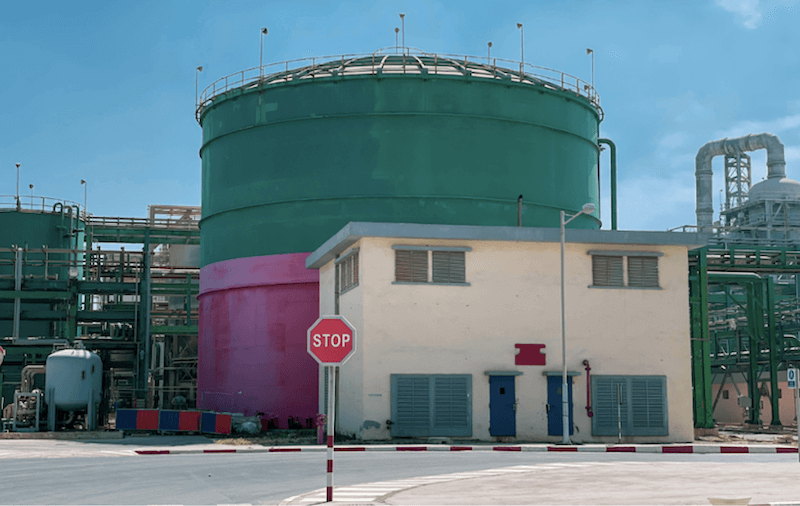Phosphates, a group of chemical compounds containing the element phosphorus, play a crucial role in HI&I, as they contribute significantly to the advancement of technology and the improvement of everyday life. In this blog post, we will explore the diverse types of phosphates Daxx specializes in and their applications in household, industrial and institutional contexts.
Types of Phosphates
Disodium Phosphate
What is disodium phosphate?
Disodium phosphate, often abbreviated as DSP, is a chemical compound widely used for its diverse applications. Comprising two sodium cations and one phosphate anion, it boasts a unique molecular structure that lends itself to versatility. In the realm of food, DSP is a common additive, valued for its role in enhancing texture and preserving the shelf life of various products. Its applications extend beyond the culinary world, finding utility in industries like water treatment and detergent manufacturing. Daxx specializes in the sourcing and distribution of disodium phosphate anhydrous, food grade, granular.
Disodium phosphate in food
DSP is a versatile ingredient widely used in the food industry, particularly valued for its emulsification properties. Acting as a stabilizer, it helps maintain the consistency of numerous processed foods, preventing the separation of oil and water. Beyond its role as an emulsifier, DSP serves as a leavening agent in baked goods, contributing to their texture and rise. Its use as a buffering agent and pH regulator ensures that the acidity levels in various foods remain within optimal ranges, influencing both taste and safety.
Monoammonium Phosphate (MAP)
What is MAP?
Monoammonium phosphate (MAP) is a compound that holds significance in various industrial and agricultural applications. This chemical consists of two ions, one ammonium cation (NH₄⁺) and one phosphate anion (H₂PO₄⁻), forming a white crystalline powder.
Monoammonium phosphate fertilizer
In agriculture, MAP is widely used as a fertilizer, providing essential nutrients like phosphorus and nitrogen to plants. It ensures robust plant growth by providing accessible nitrogen for vegetative development and phosphorus for root strength. Its water-soluble nature facilitates rapid absorption by plant roots, making it particularly effective in early-stage growth. MAP’s versatility extends to various soil types and crops, and its slightly acidic reaction is beneficial for addressing pH concerns in the soil. Widely used as a standalone fertilizer or as part of blended formulations, MAP remains a cornerstone in promoting efficient nutrient delivery for optimal crop yield and health.

Trisodium Phosphate (TSP)
Trisodium phosphate (TSP) is a chemical compound composed of three sodium cations and one phosphate anion. While historically used in cleaning products and as a water softener. TSP was once utilized in the food industry as a pH regulator and emulsifying agent, contributing to the texture and stability of certain processed foods. However, due to potential adverse health effects when consumed in large quantities, its application in food has diminished.
Phosphoric Acids
Phosphoric acid is a mineral acid that consists of phosphorus, hydrogen, and oxygen. Its chemical formula is H₃PO₄. This colorless and odorless liquid is derived from the chemical reaction of elemental phosphorus with oxygen. Phosphoric acid is widely used in various industries, with one of its primary applications being in the production of fertilizers. In the food and beverage industry, it plays a crucial role as an acidifying agent, providing a tangy flavor to soft drinks like colas. Additionally, phosphoric acid is employed in the manufacturing of detergents, water treatment, and as a rust inhibitor.

Phosphoric Acid 75
Phosphoric Acid 75, a concentrated form of phosphoric acid with a 75% purity level, plays a crucial role in the soda and food industry. In the production of sodas, phosphoric acid is commonly employed as an acidifying agent to impart a distinctive tangy flavor, particularly in colas. Its acidic properties not only contribute to the beverage’s taste profile but also serve as a preservative, enhancing the shelf life of the product. Beyond sodas, phosphoric acid is utilized in the food industry as a pH regulator and acidulant. It helps control acidity levels in various food products, contributing to flavor balance and stability. The controlled use of Phosphoric Acid 75 in these industries showcases its versatility, aiding in the creation of appealing tastes and ensuring the preservation of food and beverage products.
Phosphoric Acid 85
Phosphoric Acid 85, a highly concentrated form with 85% purity, serves various purposes, including its use as a fertilizer and water softener.
In agriculture, Phosphoric Acid 85 is a vital component in the production of fertilizers. Its high phosphorus content makes it an excellent source of this essential nutrient for plants. As a fertilizer, it supports healthy root development, flowering, and overall plant growth, contributing to improved crop yields.
In the realm of water treatment, Phosphoric Acid 85 acts as a water softener. It effectively binds with calcium and magnesium ions in hard water, preventing the formation of scale deposits. This not only helps in maintaining the efficiency of water-using appliances but also prolongs the lifespan of pipes and fixtures by reducing the risk of mineral buildup.
As household, industries and institutions navigate the complex landscape of chemical applications, Daxx Group stands as a beacon, providing the supply chain solution. Our perseverance to overcome supply chain disruptions is what sets us apart from our competitors. When other companies can’t, we can. Contact us for any supply chain management, sourcing, custom blending, or distribution excellence.



